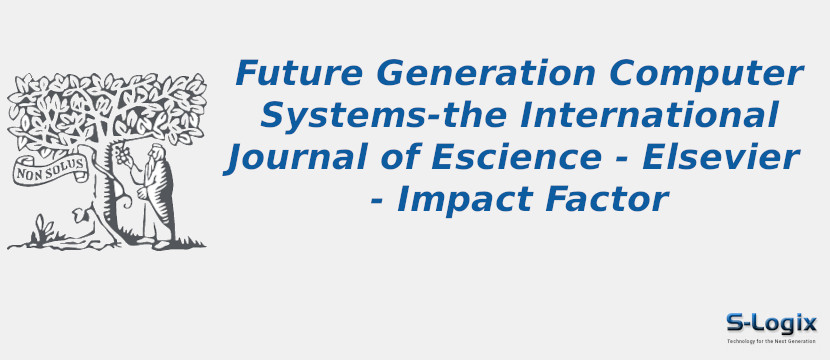Future Generation Computer Systems (FGCS) is an esteemed, peer-reviewed academic journal dedicated to the field of computer science, with a specific focus on the latest advancements and future trends in computing and its applications. Published by Elsevier, the journal serves as a significant platform for disseminating high-quality research related to the development, implementation, and management of next-generation computer systems.
Content Types:
Research Articles: Comprehensive research studies presenting novel methodologies, experimental results, and theoretical advancements in the field of computer systems and technology.
Review Articles: In-depth reviews that synthesize existing research, highlight current trends, and suggest future research directions.
Technical Notes: Short reports on new tools, technologies, or methods relevant to future generation computing systems.
High Standards and Impact:
Peer-Reviewed: FGCS employs a rigorous peer-review process to ensure the quality, accuracy, and significance of published articles.
Interdisciplinary Approach: The journal encourages the integration of knowledge from various fields, fostering innovation and collaboration in computing research.
Citation Impact: Articles published in FGCS are widely cited, reflecting the journal influence and contribution to the advancement of computer science research.
Global Reach:
International Contributions: The journal attracts contributions from researchers and practitioners worldwide, providing diverse perspectives and insights.
Multidisciplinary Content: FGCS publishes research that spans multiple disciplines, promoting a holistic understanding of the interplay between various aspects of future computing systems.
Significance: Future Generation Computer Systems (FGCS) is a leading academic journal that significantly contributes to the field of computer science, focusing on future trends and advancements in computing technology. Its rigorous peer-review process, interdisciplinary approach, and global reach make it an invaluable resource for researchers, practitioners, and students dedicated to the study and application of next-generation computer systems.
Journal Home: Journal Homepage
Editor-in-Chief: Michela Taufer
scope:
Future Generation Computer Systems (FGCS) - The International Journal of eScience is a peer-reviewed academic journal that publishes high-quality research on the design, development, and application of computer systems for eScience. The journal focuses on innovative technologies, methodologies, and systems that advance scientific research through computing.
The scope of the journal includes, but is not limited to, the following areas:
High-Performance Computing: Research on the architecture, performance, and application of high-performance computing systems, including supercomputers and parallel processing systems.
Cloud Computing and Distributed Systems: Studies on the design, deployment, and management of cloud computing environments, distributed systems, and their applications.
Big Data Analytics: Innovations in the processing, analysis, and visualization of large-scale datasets, addressing challenges in storage, computation, and interpretation of big data.
Internet of Things (IoT): Exploration of IoT technologies, including the integration of sensors, data analytics, and networking for various applications.
Artificial Intelligence and Machine Learning: Research on AI and machine learning techniques and their implementation in real-world applications and future computing systems.
Security and Privacy: Studies focusing on the security and privacy aspects of computing systems, including cybersecurity measures, encryption techniques, and data protection.
Green Computing: Research on energy-efficient computing practices, sustainable IT solutions, and the environmental impact of computing technologies.
Emerging Technologies: Examination of cutting-edge technologies such as quantum computing, blockchain, and edge computing, and their potential impact on future computer systems.
eScience and Scientific Computing: Research on the application of advanced computing techniques to scientific problems, facilitating new discoveries in various scientific disciplines.
Print ISSN: 0167-739X
Electronic ISSN: 1872-7115
Abstracting and Indexing: Science Citation Index Expanded, Scopus.
Imapct Factor 2023: 7.5
Subject Area and Category: Computer Sciences, Electronics and Telecommunications
Publication Frequency: Bimonthly
H Index: 164
Q1: Computer Networks and Communications,Hardware and Architecture
Q2:
Q3:
Q4:
Cite Score: 21.1
SNIP: 2.584
Journal Rank(SJR): 2.043
Guidelines for Authors: Future Generation Computer Systems-the International Journal of Escience Author Guidelines
Publisher: Elsevier Science Bv
Country: Netherlands
